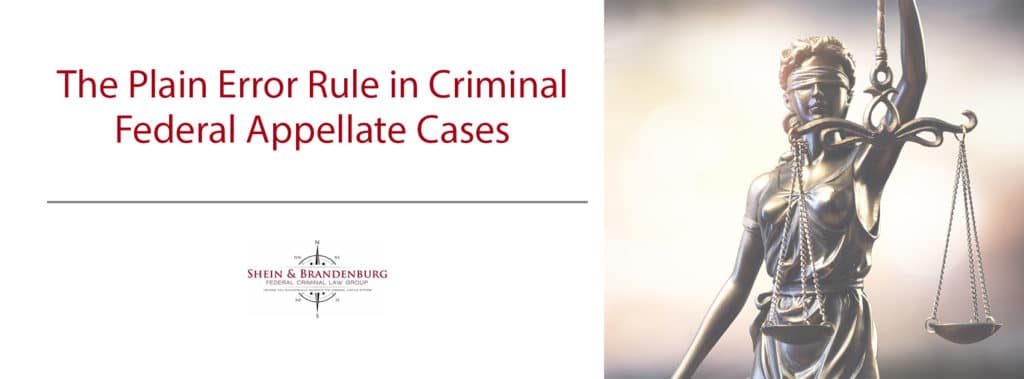The United States Supreme Court recently heard oral arguments in the case of Rosales-Mireles, which forced the court to determine when a court of appeals should exercise its discretion when confronted with an obvious guideline error that results in a defendant serving a longer prison sentence.
The case at hand involves Rosales-Mireles, who plead guilty to illegal re-entry, which resulted in the district court sentencing him to 78 months in prison based on the erroneous conviction count by a probation office. After Rosales-Mireles became aware of the probation error, he appealed to the Fifth Circuit and then the Supreme Court. Currently, this case has the potential to significantly change how issues related to federal appellate cases are handled.
What is the Plain Error Rule
Plain error refers to a special standard of review that allows an appellate court to review a decision that is considered particularly at odds with the laws. A person is not required to preserve an error for appeal by raising an objection to behavior at trial. The plain error standard often only applies to cases in which refusing the appeal would result in justice not being delivered. To successfully argue a plain error case, a person must be able to prove the existence of four elements – an error, that was clear or obvious in nature, that affected the person’s rights in a substantial manner, and that seriously affect the fairness or integrity of judicial proceedings.
The Fifth Circuit’s Opinion of the Case
The Fifth Circuit applied the plain error test to the case and concluded that the double counting was error and that the error was obvious. The Court also required Rosales-Mirele to demonstrate a reasonable probability that without the lower court’s misapplication of the guidelines, Rosales-Mireles would have received a lesser sentence.
The court declined to state that the lower court would have issued the same sentence if it had counted correctly, which resulted in the court finding that Rosales-Mireles satisfied the third prong of the test. The court then decided that the remaining issue was whether the court should exercise its discretion to correct the error. The Fifth Circuit declined to exercise its discretion in the case and as a result, affirmed the sentence of Roseles-Mireles.
Arguments Before the Supreme Court
The government argues that the Fifth Circuit was correct in letting Roseles-Mireles’ conviction stand because the lower court’s decision was reasonable and could have been instituted under the guidelines even if Roseles-Mireles had raised a timely appeal. Fault in the case, the government argues, lies in Roseles-Mireles for failing to raise the error prior to the issuing of the lower court’s decision.
Discover How a Seasoned Appeal Attorney can Help
If you need assistance with your federal criminal appeal, do not hesitate to contact the Federal Criminal Law Center today. Our legal counsel has significant experience helping people create strong appeals and will remain committed to achieving the best possible outcome in your case.


